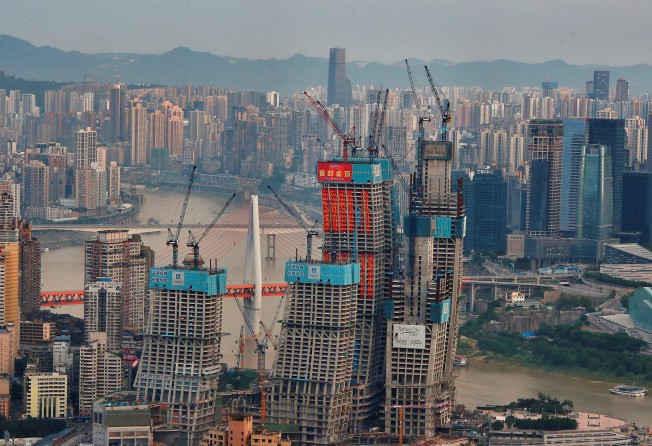What does ‘property long-term mechanism’ mean and how will it affect the Chinese market?
New policy to tackle demand and supply in the property market maybe announced at the conclusion of 19th congress

The phrase “property long-term mechanism”, until now used only by policy wonks, has become a buzzword in China, especially among the state media and experts close to the government.
The phrase gained further prominence after Ning Jizhe, director of the National Bureau of Statistics of China, said last week that Beijing was drafting this mechanism “at a ferocious pace” and that its details would be announced at “an appropriate time”. Many observers took this to mean the conclusion of the 19th congress, and suggested the mechanism would be written into the communique of the congress.
Long-term mechanism, or a long-term mechanism for the stable and healthy development of the property market, is not new. It was first mentioned in 2013, when the Xi Jinping-Li Keqiang administration took office. It was explained as a series of measures, including financial, land, tax, investment and legislative, that would manage the property market. However, not much was done until the end of last year, when a Politburo meeting picked it up again after an epic home-price rally, amid discussions on why rounds of demand-curbing measures had repeatedly failed to prevent inflation.
“A long-term mechanism should follow the ‘supply-side reform’ mantra and tackle both demand and supply. Land and housing supply is essential. Expectation stabilisation is the key,” the Xinhua news agency said in a commentary.
Zhang Hongwei, the research director of property consultancy TopSur, said unlike previous campaigns where rhetoric preluded action, this time lots of measures have been announced or implemented before the rhetoric. For example, a national real estate registry system that will pave the way for property taxes has been in the making for three years.
Nine ministries in July selected 12 major cities for experiments in leasing, including public auction for lease-only residential plots. Beijing and Shanghai are piloting “joint-ownership housing” that keeps household purchasing costs down by letting the government pay a portion of the price.
The government has also vowed to increase land supply. The Ministry of Land and Resources launched a campaign across 71 cities to punish developers that have delayed construction or sale since the acquisition of land.
The most important issue remains whether property tax – long discussed but never implemented – will be rolled out with the “mechanism” package. Liu Shijin, vice-chairman of the China Development Research Foundation, a think tank, said property tax was “fundamental”for a healthy property market, that despite tangled vested interests it should be put forward with some reasonable exemptions.
Others suggest talk of property tax is overblown. Li Zhanjun, chief researcher at the China Real Estate Association, said: “You cannot levy tax on something that people do not actually own – that is the land.”